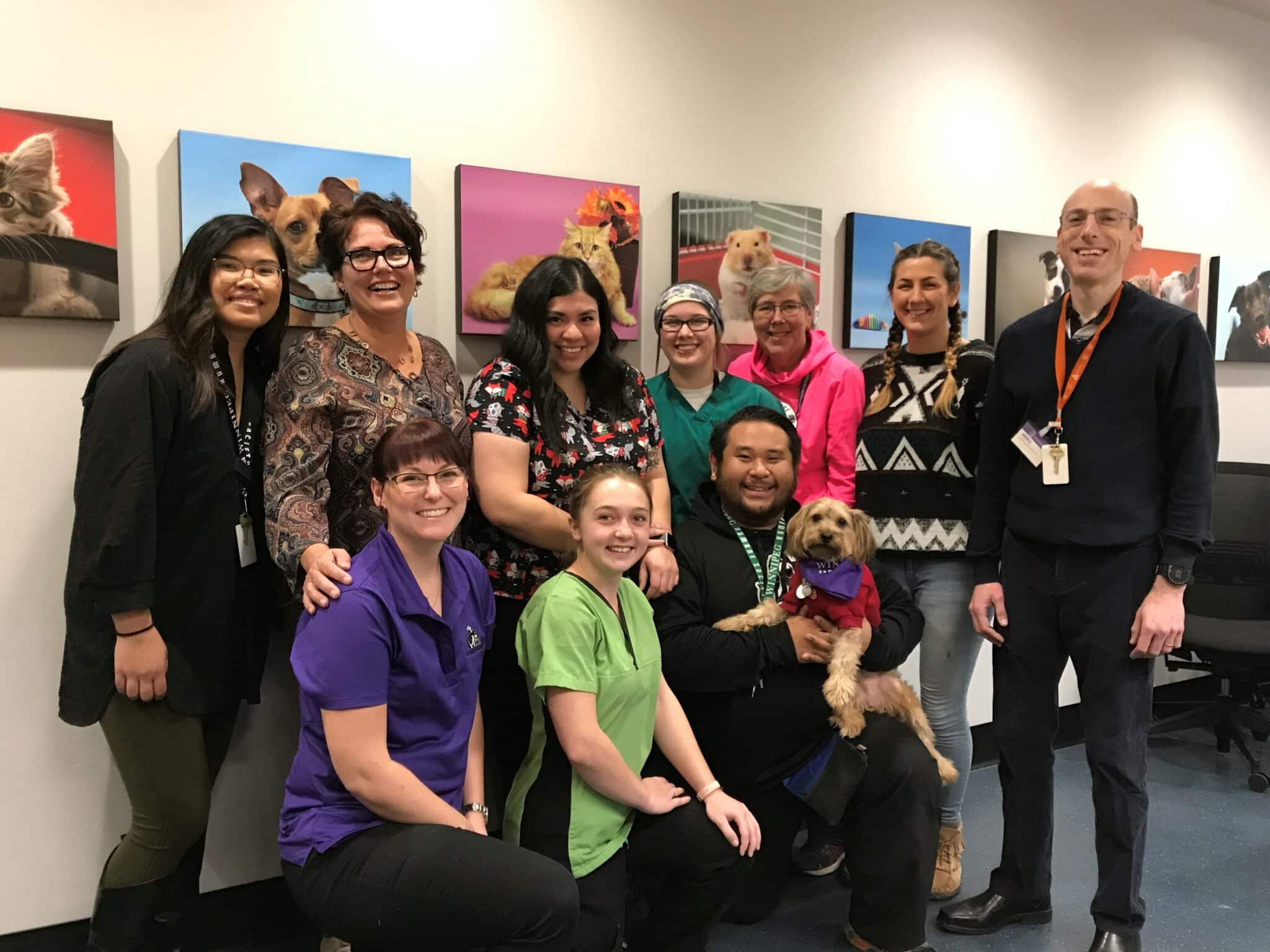
CEO Blog: Your wishes, expectations and priorities for 2020

As I type this blog, I am looking at the calendar and I cannot believe 2019 is coming so quickly to a close, while your Winnipeg Humane Society is getting ready to complete the development of our annual strategic and operating plan.
One of the key components of our plan-building exercise is the community consultation surveys. Every year, we ask our donors, social media friends and followers, staff and volunteers and our Board of Directors about our priorities, their expectations, and what things we should definitively tackle moving forward. This is a very important exercise because the WHS is committed to aligning our actions to the needs and wants of those who support us with their donations and their time, as well as the passion and drive of our staff and Board.
For those who love statistics, we had a total of 490 participants, the majority (57%) were donors, and the second largest group was our social media followers (30%). Most staff and a good number of volunteers also completed the consultation survey.
We asked people to rank various priorities from most pressing to important, but less of an emergency. For the most part, all stakeholders agreed on what those priorities should be, and now I would like to share them with you. If you have any more ideas or opinions, feel free to reach out to us, while we must complete our planning it is important to us to remain open to ideas, criticisms and further refinement of our plans.
Here are the top 3 priorities YOU decided we should tackle first:
Priority #1: Assist remote communities across Manitoba by coordinating vaccine, spay/neuter clinics, and assisting with animal control strategies
While our name is “Winnipeg Humane Society”, there is a growing expectation from our supporters that we should try to help communities outside our city. With dozens of animal rescues and local animal welfare groups already working in remote areas of Manitoba, our approach will be to try to partner with reputable rescues and organizations and expand the number of spay and neuter clinics we do from the current 2-3 per year, to 4-6 in 2020. Our goal will be to continue to increase that number of clinics, until we can do 10 or 12 every year.
In terms of technical support, we would need dedicated resources to help communities organize responsible pet caregiving bylaws or guidelines, in order to reduce potential health and safety risks in these communities. And we need to do this in the spirit of cooperation, respect and following Canada’s Truth and Reconciliation guidelines. The WHS is not about to go and tell these communities how to do things, we should be there to help in their terms and with buy-in from leadership and community.
How are we going to tackle this priority?
We tested the idea of having a remote clinic coordinator. This position will be tasked to develop partnerships with under-served communities, hold meetings with rescues already doing this work, prepare the clinics, coordinate all logistics once in the community, and seek funding to pay for all this. The test showed us that we need an internal, dedicated position to get things moving faster. So we are in the process of hiring for this position and we hope to have someone in place by the start of our fiscal year, that is April 1, 2020.
Priority #2: Increased focus in enforcing animal welfare laws
The Winnipeg Humane Society is proud to be a partner of the Province of Manitoba enforcing the Animal Care Act in the City of Winnipeg. We work side-by-side with the Chief Veterinary Office of the Province, conducting most of the investigations in Winnipeg; and with an ever-growing number of humans choosing to adopt or purchase a pet the volume of calls of concerns and welfare emergencies continues to grow.
If you are in Winnipeg and follow some of the local news, you may also know that right now the level of violence and challenges with substance abuse is increasing. So we have a two-fold challenge: to keep up with the investigations, protect innocent animals and at the same time provide our Investigations and Emergency Response team the tools they need to do their jobs safely and professionally.
Currently we handle on average 220 animal welfare situations per month, and on top of responding to a concern, we need to follow up on correction orders and re-inspections for a significant number of cases for months on end. Visiting a premise is step one of a sometimes lengthy process, and we must follow the letter of the law. Not to mention that every time there is a legal hearing or deposition, team members are tied up in court for great part of the day.
How are we going to tackle this priority?
I am very pleased to inform that in 2019 the WHS was able to invest an unprecedented amount of its budget to begin building a proper Emergency and Investigations central dispatch. We have upgraded our mobile units and we are testing better communications equipment. We also are bringing support to the staff with specialized counselling and we have a plan to bring experts to better train our staff in terms of safety but also conflict de-escalation.
Additionally, we began issuing tickets to offenders. While that revenue does not come back to the WHS, it is another way of showing the people involved and the community that we are very serious about the well being of animals in our community.
Animal welfare is a priority for us. Not only in terms of pets, but also in advocating on behalf of all animals and we will also continue to do so in 2020 and beyond.
Priority #3: Continue to reduce euthanasia rates and help more animals
I have been with the WHS for almost 5 years now, and through this time there is one phrase that really captured the spirit of what we are trying to do in our shelter: We aim to give every animal we house or we serve a fair shake.
Of course, it is important to define what fair shake means, and we consulted extensively and worked with staff to understand the meaning of it. The best we came up with thus far is this: Fair shake is trying to find a live outcome for all healthy animals with behaviours that won’t endanger the community or other animals; to try to keep pets with their caregivers if there are no welfare concerns; and to humanely euthanize if the pet is suffering and there is no viable path to nurse it back to health.
We will do whatever we can, we will do whatever it takes to give each and every animal that fair shake. Since 2016, when the initial fair shake idea started to take shape, our euthanasia rate has dropped significantly. If we compare 2019 year-to-date to 2016, euthanasia is down by 64.59%; compared to 2017 it is down by another 64%; and last year versus this year we have a further drop of 33.78%.
This is data-driven way of telling you that every single animal coming to the WHS will indeed receive a fair shake. And I am so grateful to the staff and volunteers who are responsible for making this happen.
How are we going to tackle this priority?
We are at a point where the focus is shifting from just better medical and behavioural assessments and treatments, to addressing some core issues causing people to surrender a pet. We have established a community outreach area in our behaviour department so we can have struggling pet caregivers; we are moving aggressively to manage our animal intake window, so we can match adoptions and so we have adequate space for animals under our care, and we have enlisted the entire community to help us with stray cats. It is a scientific fact that if you keep a stray cat within the area in which it was found, the chances of reunion are very high. So we are asking those who find stray cats to contain them and work with us to find their home…or to adopt their newfound friend and WHS will take care of spay/neuter; licensing and an initial medical exam.
So here you have it: YOUR priorities are OUR marching orders. I look forward to work with you and the WHS team to deliver on these areas and to continue to be the most progressive, transparent and humble animal welfare organization we can be.
In service and with gratitude for helping us so much,
Javier Schwersensky
WHS CEO

